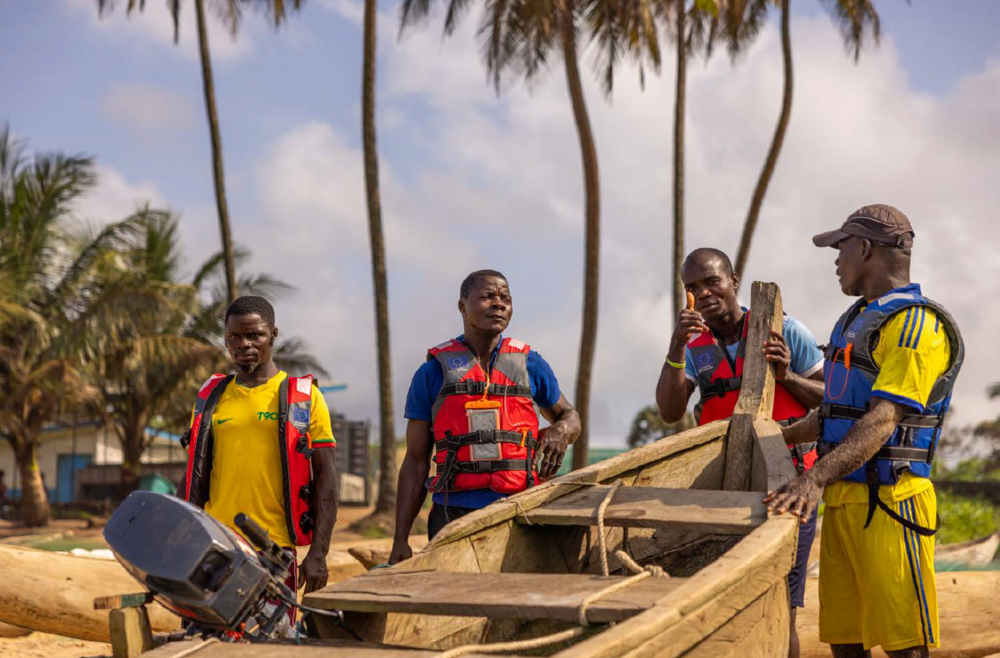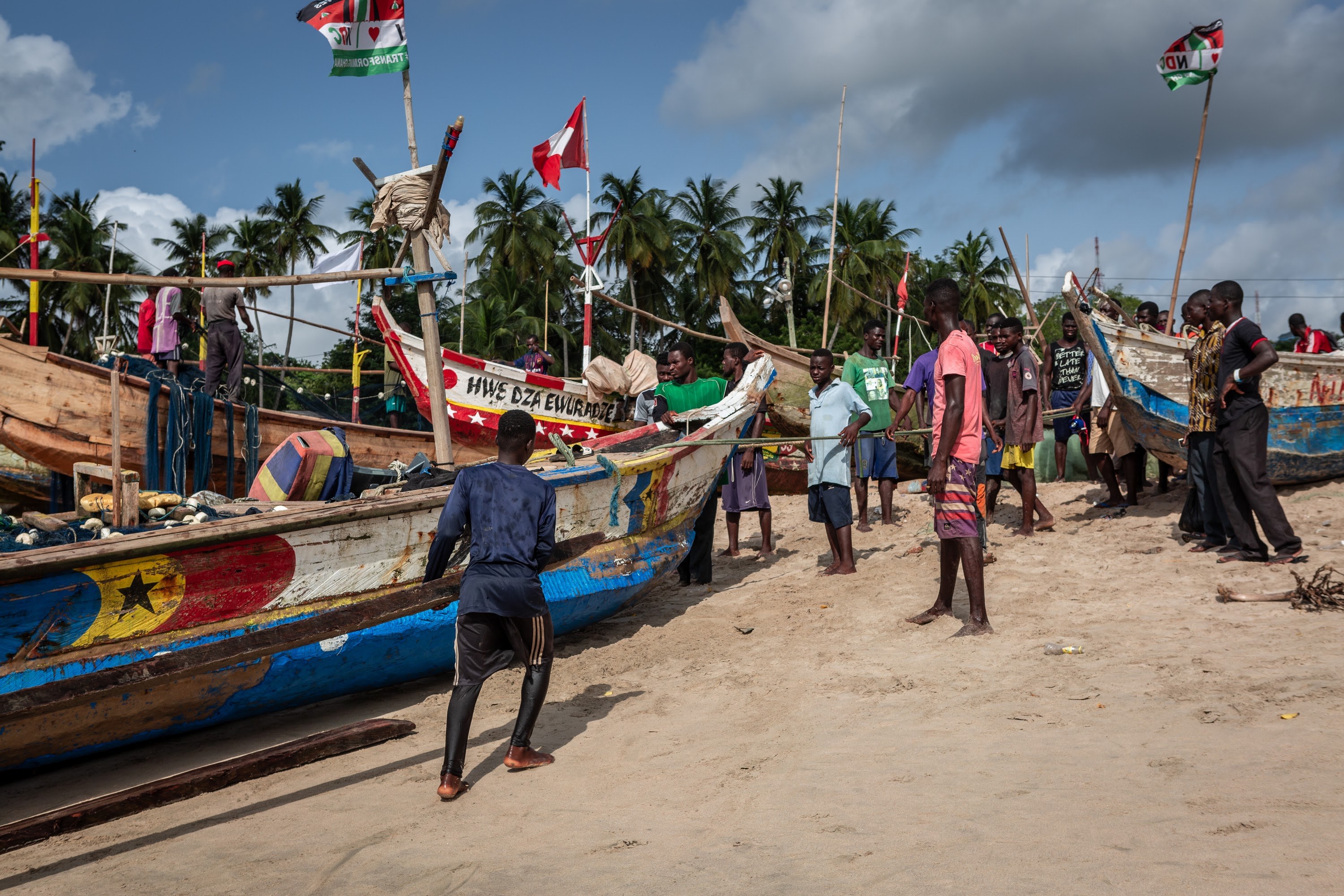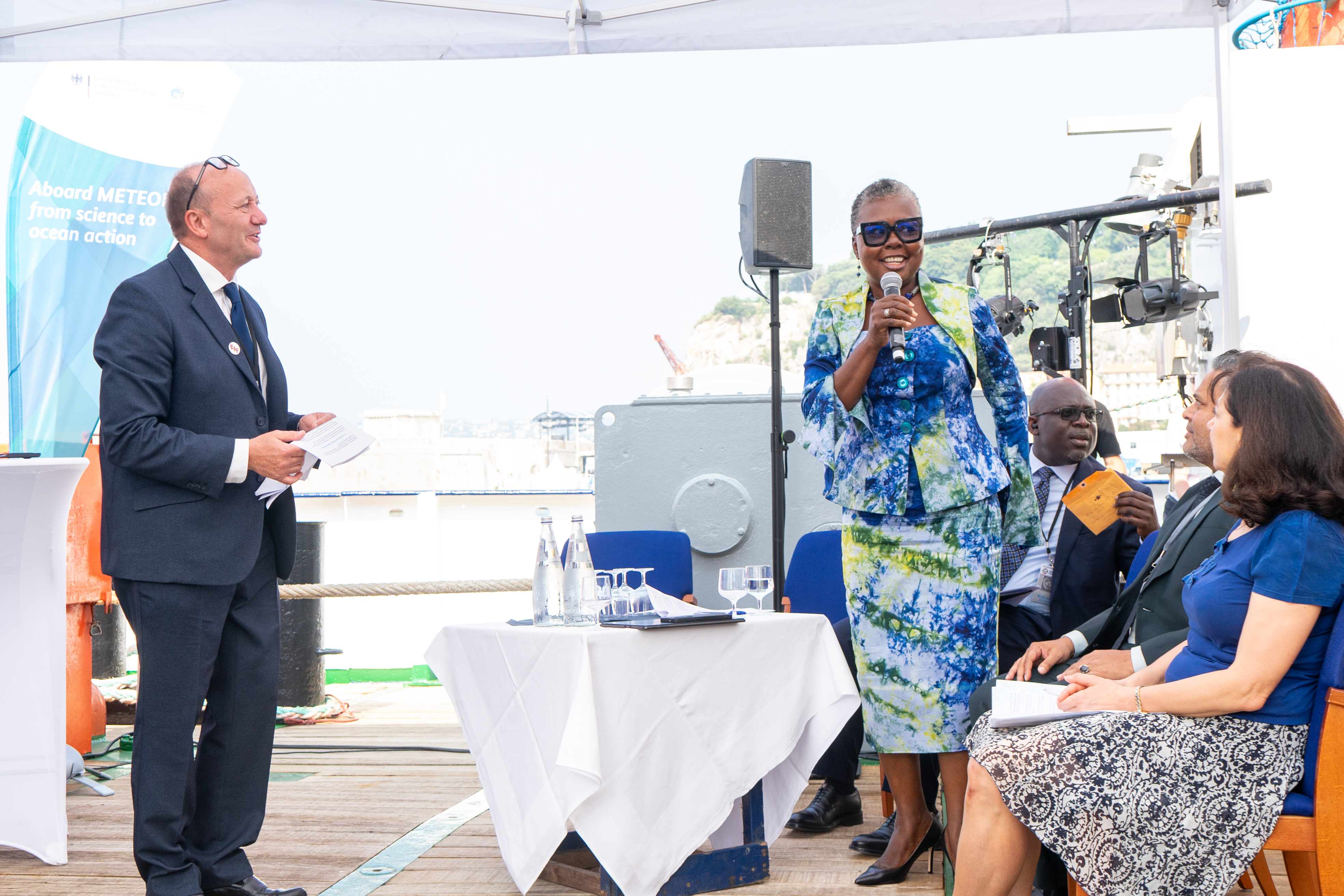
Liberia’s coastal communities empowered to manage their fisheries through co-management
A new report by the Environmental Justice Foundation (EJF) shows how Liberia’s Collaborative Management Associations (CMAs) are transforming fisheries governance, empowering coastal communities to safeguard the marine resources they depend on. The publication draws on the experience of the European Union-funded Communities for Fisheries project, which ran from December 2019 to July 2025, implemented by EJF in partnership with the Liberia National Fisheries and Aquaculture Authority (NaFAA).
Liberia’s small-scale fisheries are vital to national food security and livelihoods, supporting more than 75,000 people including fishers, fish processors, traders, boat builders, and traditional leaders. Yet these fisheries face mounting threats from illegal, unreported, and unregulated (IUU) fishing, overexploitation of fish populations, and the growing impacts of climate breakdown. To safeguard this sector, Liberia adopted a co-management approach in 2012.
The European Union-funded Communities for Fisheries project expanded this approach by helping to establish seven new CMAs in Grand Cape Mount, Margibi, Grand Bassa, and Grand Kru counties, bringing the national total to nine. CMAs serve as democratic, community-led institutions where fishers and other stakeholders collaborate with NaFAA to monitor, manage, and protect their resources.
The project also helped secure a robust policy framework for the future, including Liberia’s first National CMA Policy and Strategy and a Memorandum of Understanding between NaFAA and all CMAs. Together, these steps embed co-management into national fisheries governance and ensure that communities remain at the centre of protecting the ocean.
The report demonstrates how, when supported by strong institutions and clear policies, local communities can take the lead in building sustainable fisheries. The lessons from Liberia offer a valuable roadmap for resilient oceans and communities, said EJF.
Steve Trent, CEO and Founder of EJF, said: “Co-management empowers communities to protect the resources they rely on, giving them real influence and ownership. The EU-funded Communities for Fisheries project has shown that when fishers and authorities work together, they can make decisive progress towards sustainable fisheries. These lessons are vital for Liberia and other countries in the region facing similar challenges.”
By documenting these experiences, EJF and partners aim to provide a practical guide for other governments and communities seeking to establish co-management systems. The publication recommends steps to ensure effective implementation and manage challenges, from inclusive consultations to formal recognition and ongoing training.
The European Union-funded Communities for Fisheries project demonstrates how local communities, when supported by strong institutions and policies, can take the lead in protecting their marine resources. With small-scale fisheries forming the backbone of food security and coastal economies across West Africa, the lessons from Liberia provide a valuable roadmap for ensuring sustainable oceans and resilient communities.
ENDS
Notes to editors
Read the report here.
The report highlights the process of forming CMAs, beginning with extensive community awareness and sensitisation, followed by formal requests to NaFAA, leadership elections, and the induction of officers. It also identifies the challenges that arose during implementation, including limited resources and the need for continuous capacity-building, while showcasing achievements such as stronger local participation, increased transparency, and improved enforcement against illegal fishing.
About EJF
Our work to secure environmental justice aims to protect our global climate, ocean, forests, wetlands, wildlife and defend the fundamental human right to a secure natural environment, recognising that all other rights are contingent on this. EJF works internationally to inform policy and drive systemic, durable reforms to protect our environment and defend human rights. We investigate and expose abuses and support environmental defenders, Indigenous peoples, communities, and independent journalists on the frontlines of environmental injustice. Our campaigns aim to secure peaceful, equitable and sustainable futures. Our investigators, researchers, filmmakers, and campaigners work with grassroots partners and environmental defenders across the globe. For more information, please contact media@ejfoundation.org.
This press release and the report it describes were produced with the financial support of the European Union under the Communities for Fisheries project. Its contents are the sole responsibility of EJF and do not necessarily reflect the views of the European Union.

SIGN UP FOR OUR EMAILS AND STAY UP TO DATE WITH EJF

